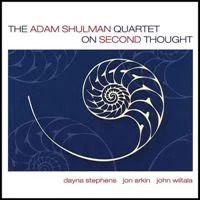Styles: Piano Jazz
Year: 1963
File: MP3@320K/s
Time: 30:02
Size: 76,7 MB
Art: Front
(2:14) 1. Brassmen's Holiday
(2:15) 2. Witchcraft
(2:32) 3. Misty
(1:54) 4. I'm Gonna Laugh You Right of My Life
(3:02) 5. It Amazes Me
(2:27) 6. Hey, Look Me Over
(2:18) 7. The Riviera
(2:49) 8. Autumn Nocturne
(2:17) 9. Leave It To Love
(3:01) 10. I Thought About You
(2:24) 11. You Fascinate Me So
(2:43) 12. The Best Is Yet To Come
The compositional skills of Cy Coleman (1929–2004) run through the veins of Jazz, and this is only the starting point for other genres, styles and radical interpretations du jour to succumb to the clarity of the tone sequences and strong melodies. In fact, there is no area of popular music in the 50’s and 60’s that hasn’t been touched by Coleman’s wizardry, and whether you call Space-Age, Exotica or Saturday show tunes your forte, multiple arrangers got your back and bring you Coleman, among them American composer, arranger and trumpeter Billy May (1916–2004) who brings us the 12-track compendium of Coleman corkers called Piano Witchcraft, released in 1963 on Capitol Records. If there is one basic premise of a spell, it is its reliance on ploys, illusions, deceptions, razzle-dazzle.
This applies to the very title of this album which offers much more than just the magic of the piano: varied brass layers and two flutes are equally important in transmuting the material into magic. And Billy May knows what he is doing. Exotica fans know him best as the principal leader of the Rico Mambo Orchestra that fueled Yma Sumac’s most celebrated release Mambo! (1954) or probably for his supergroup The Out Islanders whose album Polynesian Fantasy (1961) is an enchanting amalgamation of Proto-Surf, Ragtime and soothing island vibes. Here, then, is a closer look at Piano Witchcraft which is excitingly dreamy and insouciant as well. There’s probably no better way to start an album that’s called Piano Witchcraft than with Brakemen’s Holiday, at least when this particular arrangement is considered: spectacularly vivid piano helixes rotoscope amid municipal horn protuberances, the tempo is smoking fast, making side A running on all cylinders right from the get-go. The adjacent gold standard Witchcraft then resides on the laid-back side of life, enchanting with its fittingly aureate piano chords, the warm polyphony of the trumpets and cautiously shrill flute ectomorphs aka the wherewithal of magic.
While the warmhearted Misty’s physiognomy is that of a carefully accompanied piano arrangement with a delicious interlocution between pristine dew drops and name-related mellow brass smoke, I'm Gonna Laugh You Out Of My Life augments the timbrical retinue of brass, woodwind and piano epithelia with a unapologetically magnanimous good mood fueled by happy carefreeness, before It Amazes Me emits white keys like dew drops; their rotatory sprinkles are few and far between, but held together by a milquetoast micrometry of the brass layers. Hey, Look Me Over then illumines the proscenium with neon-colored show tune tonalities trumpet-wise and gives the hydromagnesite piano glints a Saturday night vibe. Side B opens with The Riviera, an uplifting stroll through the orthochromatic landscape that is inculcated via technicolor brass flares and a paraphyletic piano phytotelemata of the glacial kind, thus shuttling between fuzzy warmth and crystalline clarity whereas Autumn Nocturne revs up the presence of the piano in a quasi-focused arrangement with the signature instrument in the epicenter, only providing a mild serration of it with the fibrillar aura of the subdued brass illuminants; the precise proclivity of the flutes scythes through the viscoelasticity one single time only, and it’s more caproic than truly incisive.
Leave It To Love meanwhile oscillates between moonlit horn vibes and the piano-and-flute-driven concept of an afternoon stroll through concrete jungles, with the follow-up I Thought About You providing a starstruck slow dance ceremony where the piano glistens like cerulean dew; cautious intermediate tones even hint at a pinch of Rag, but make no mistake, this is a smoochy affair when compared directly to these fragile style adjuvants. The penultimate You Fascinate Me So returns to the saturated hue of cajoling brass fibroblasts and offers an another iteration of admixed predilection for a piano-driven epicenter before the cheeky occurrence of The Best Is Yet To Come marks the swinging finale that somewhat mirrors the opener of side A due to its orthogonal perianths: nomological flutes meet muted brass muons and their fully colored show tune brethren, altogether mustered by the plinking prestidigitation of Cy Coleman on the piano. Piano Witchcraft is a magnificent work of playful interdependencies between its primary three forces – piano, flutes, brass – and nothing else, and this erudite cathexis as well as the willful reduction to this formula make the album a masterful sparkler that should not remain underestimated. It is true that this particular work is less considered and clearly situated under the radar nowadays if only for the fact that an officially remastered digital reissue has yet to materialize at the time of writing this review, but this only heightens and magnifies the enchantment of the featured material. All compositions feature the basic premise of Cy Coleman’s cosmic melodies, centrifugal journeys and tantamount moments of contemplation and quiescence, and Billy May’s orchestra knows how to encapsulate and exude their particular spirits.
This is an album full of romanticism, but it is the good, non-cheesy kind of devotion and mutual understanding! Even my beloved and fully orchestral Love Eyes (1960) by Dominic Frontiere is much more tacky in its less stellar parts. Piano Witchcraft, on the other hand, advertises the well-known slogan ”less is more,” at least on the instrumental side of life before it ventures all the keener into the chromogenic verglas dioramas of Coleman’s compositions. Everything fits together, and despite the focus on coherence and continuity, the amethystine flow allows for sparkling surprises to happen throughout the short runtime. Piano Witchcraft never overstays its welcome which makes it even larger. http://www.ambientexotica.com/exorev476_cycoleman_witchcraft/
Piano Witchcraft







